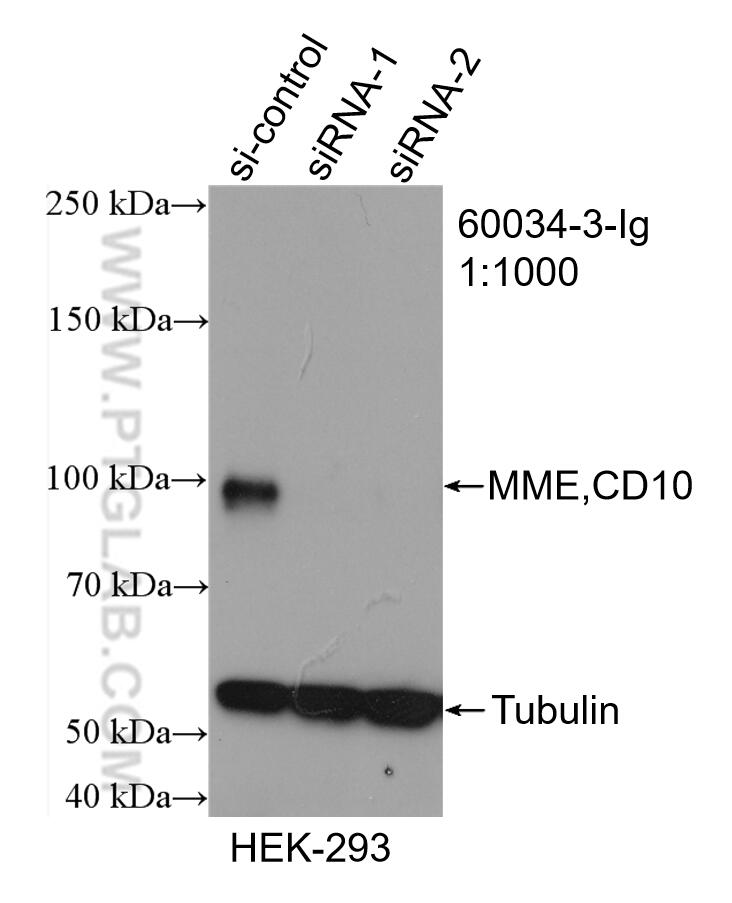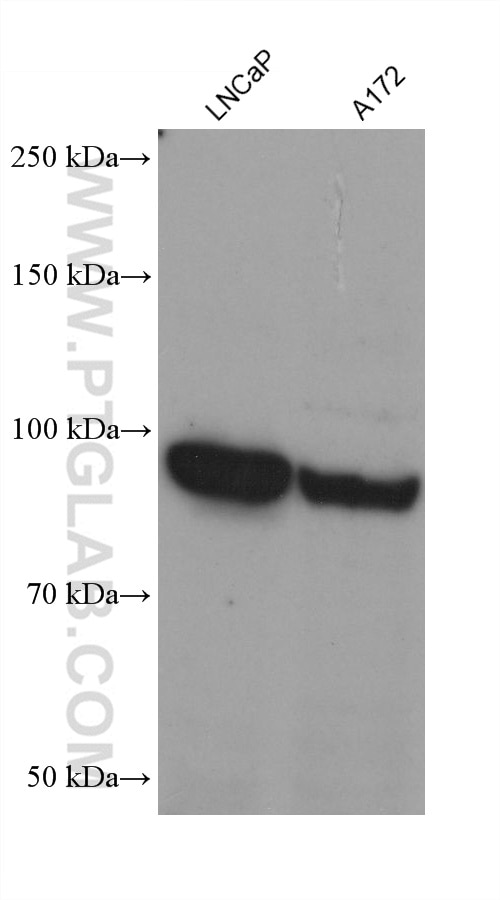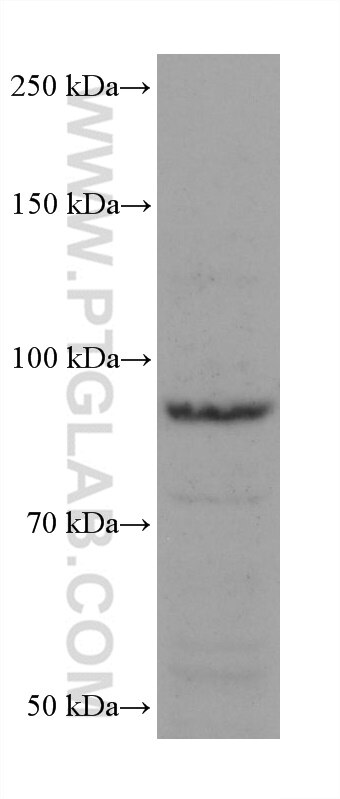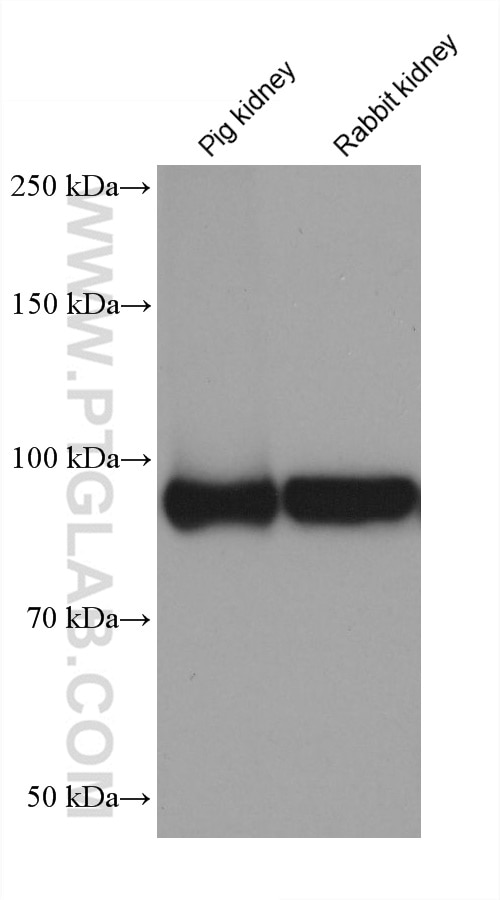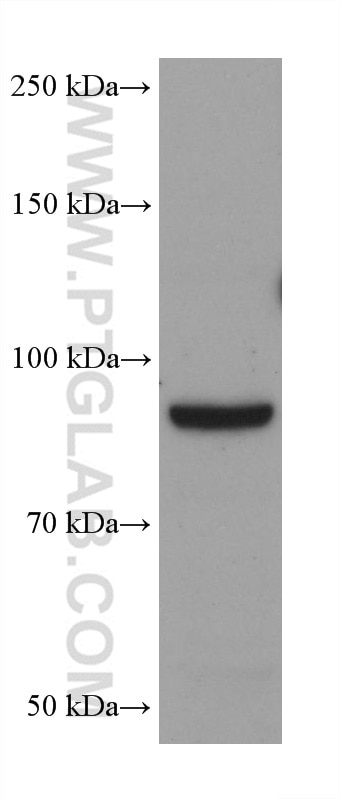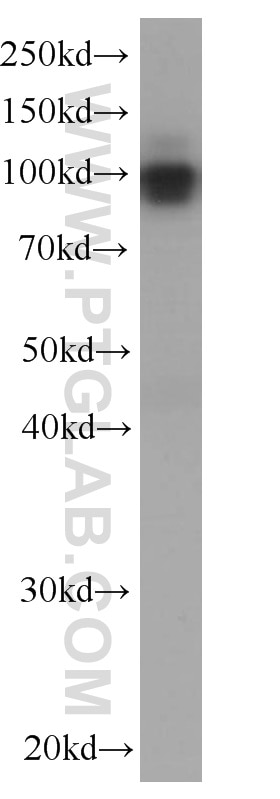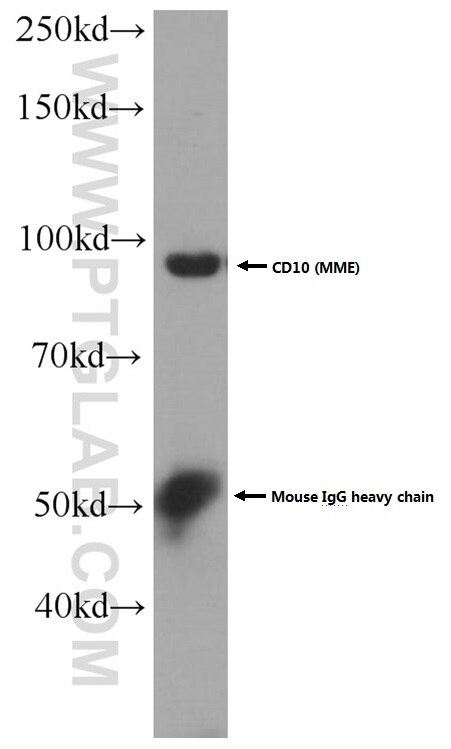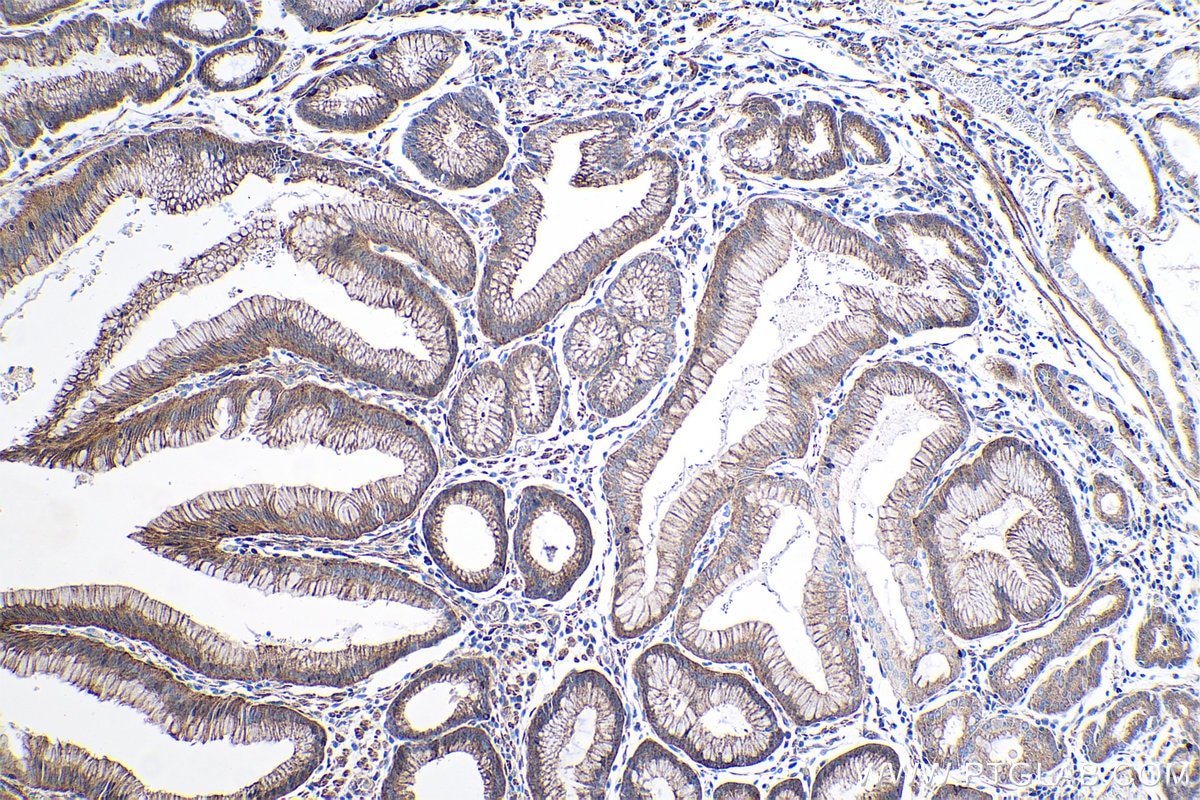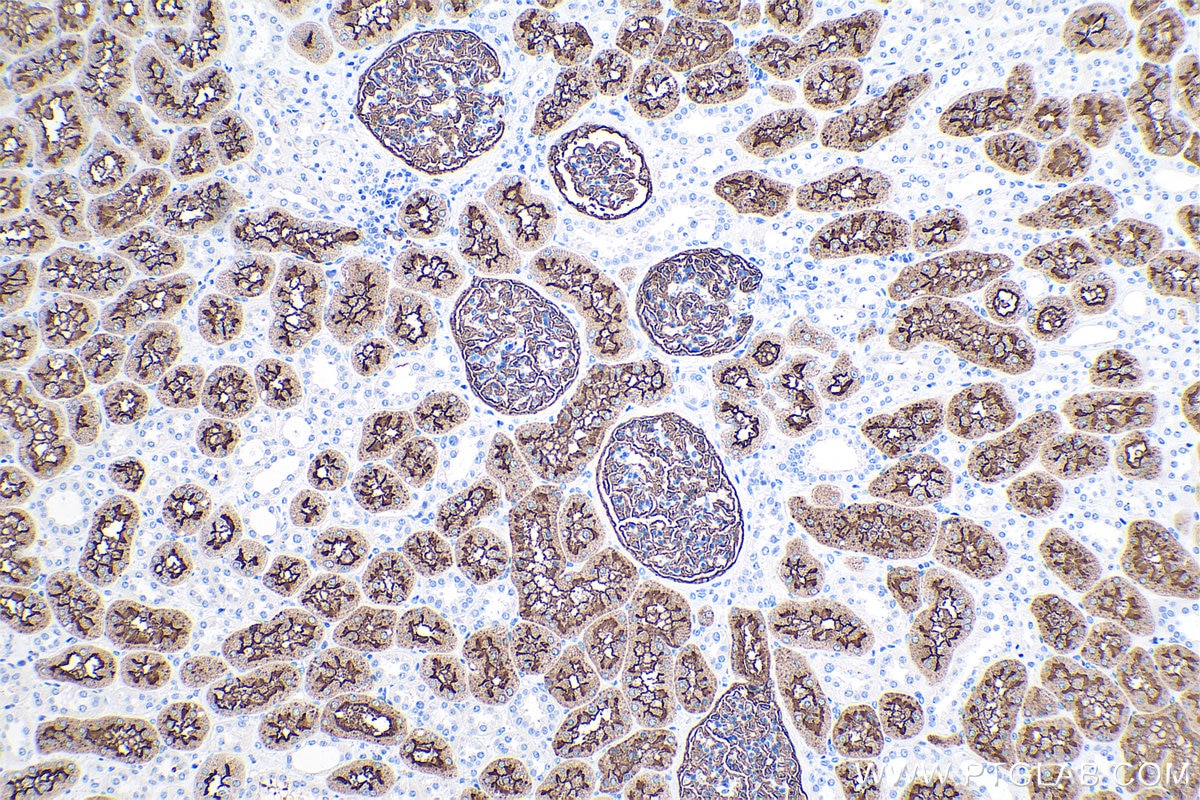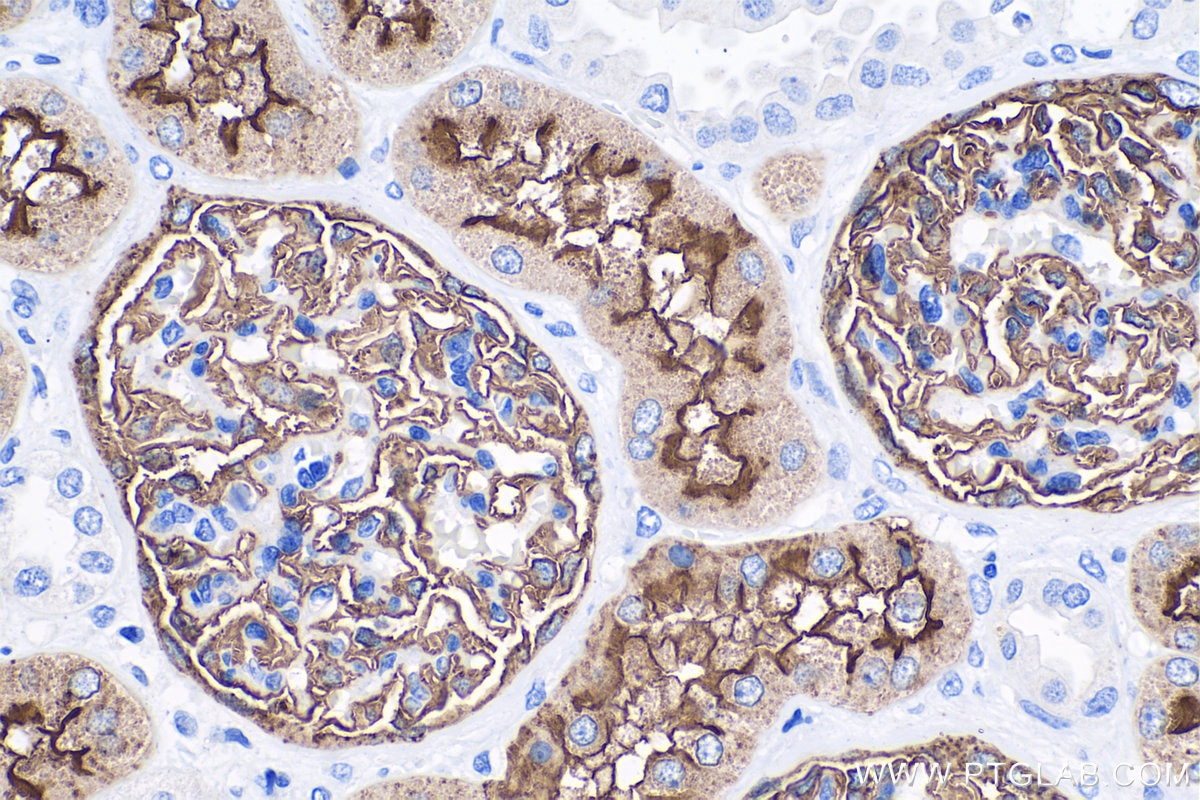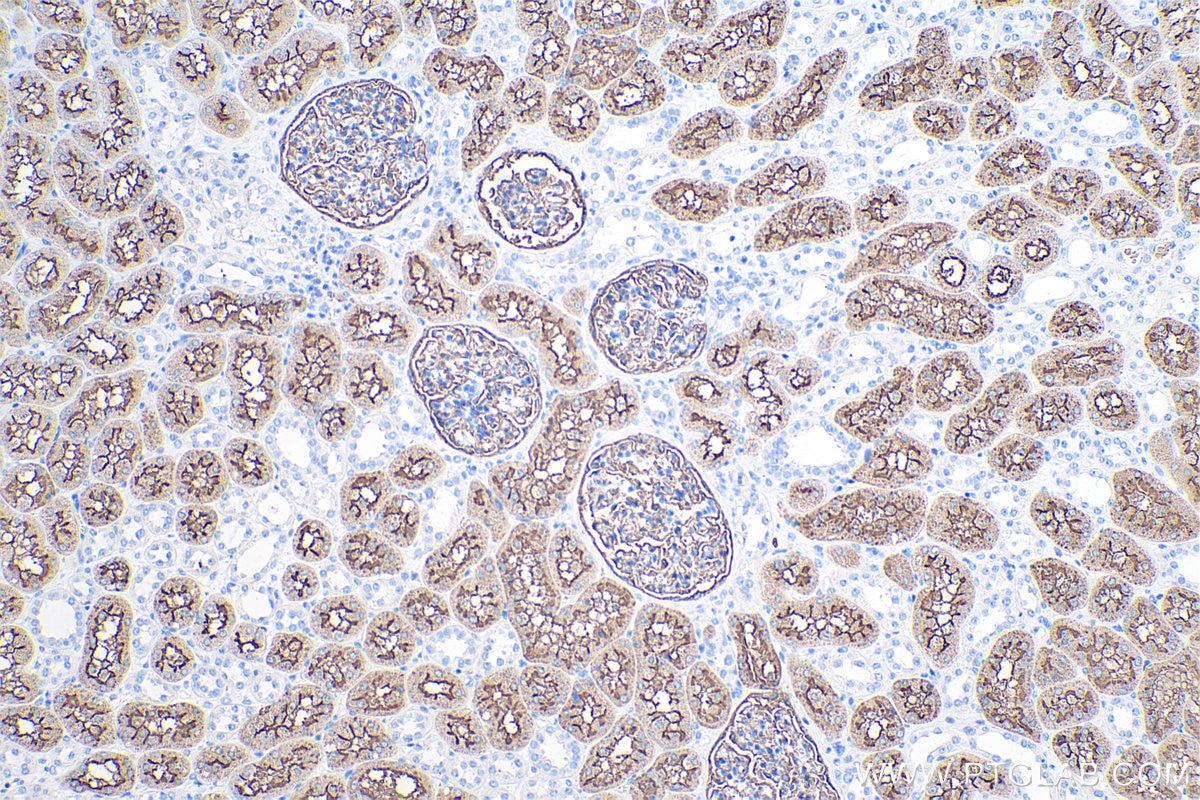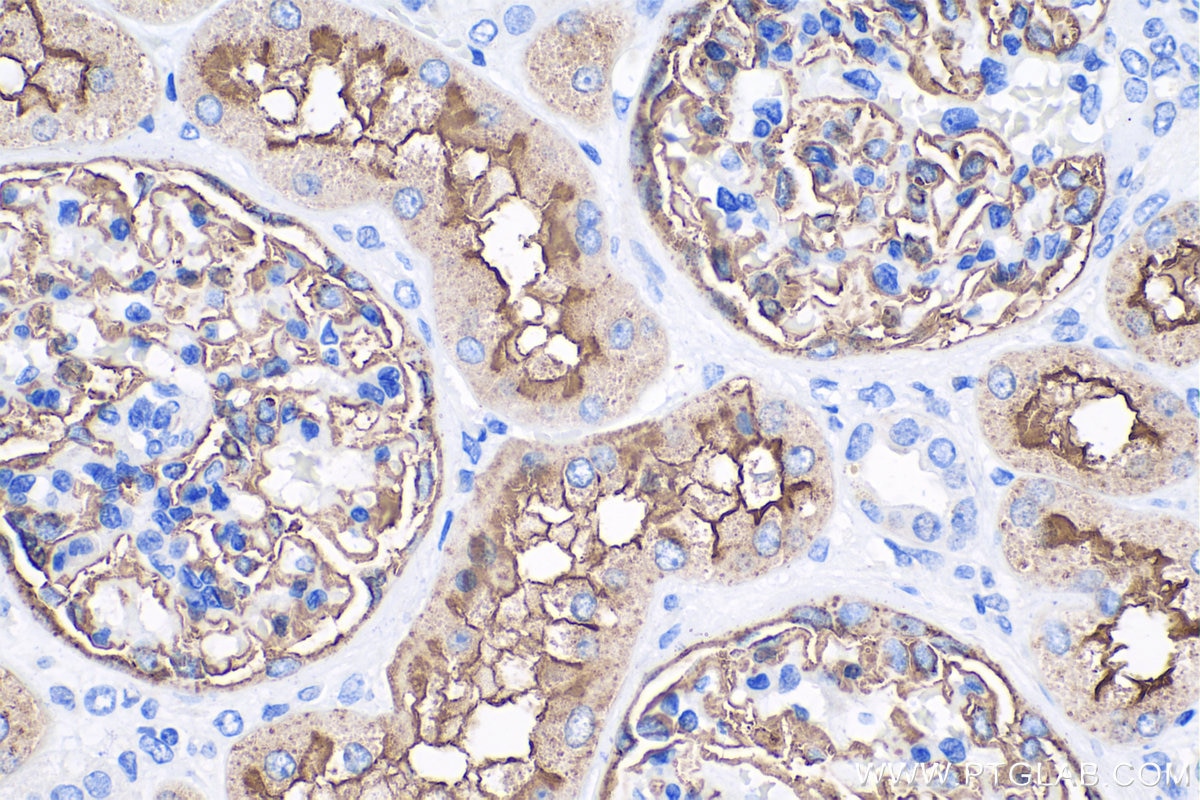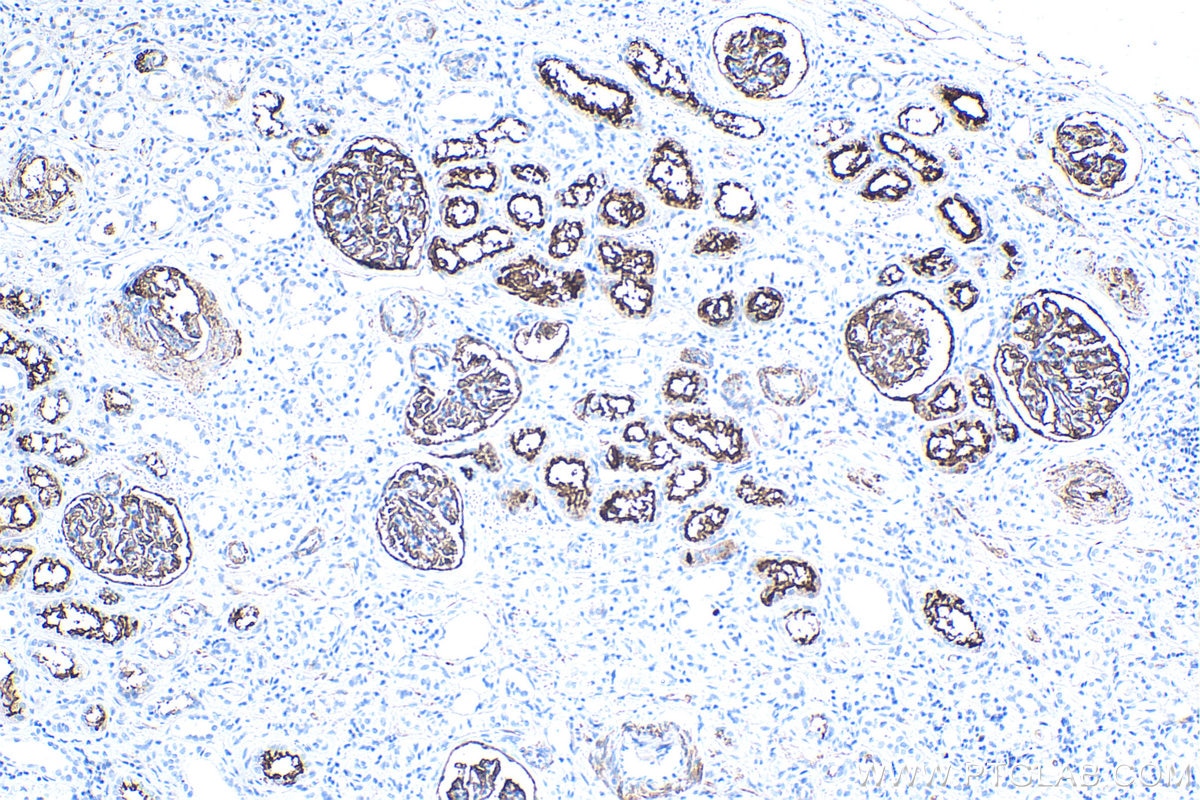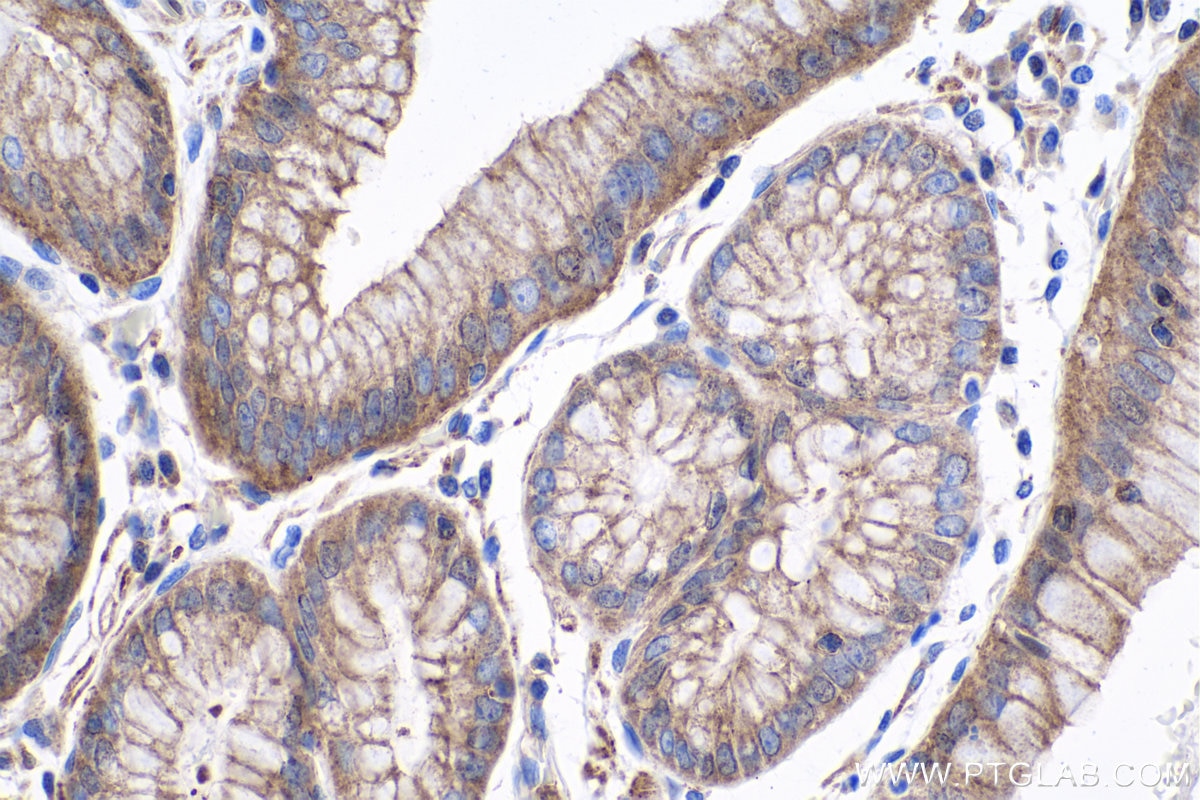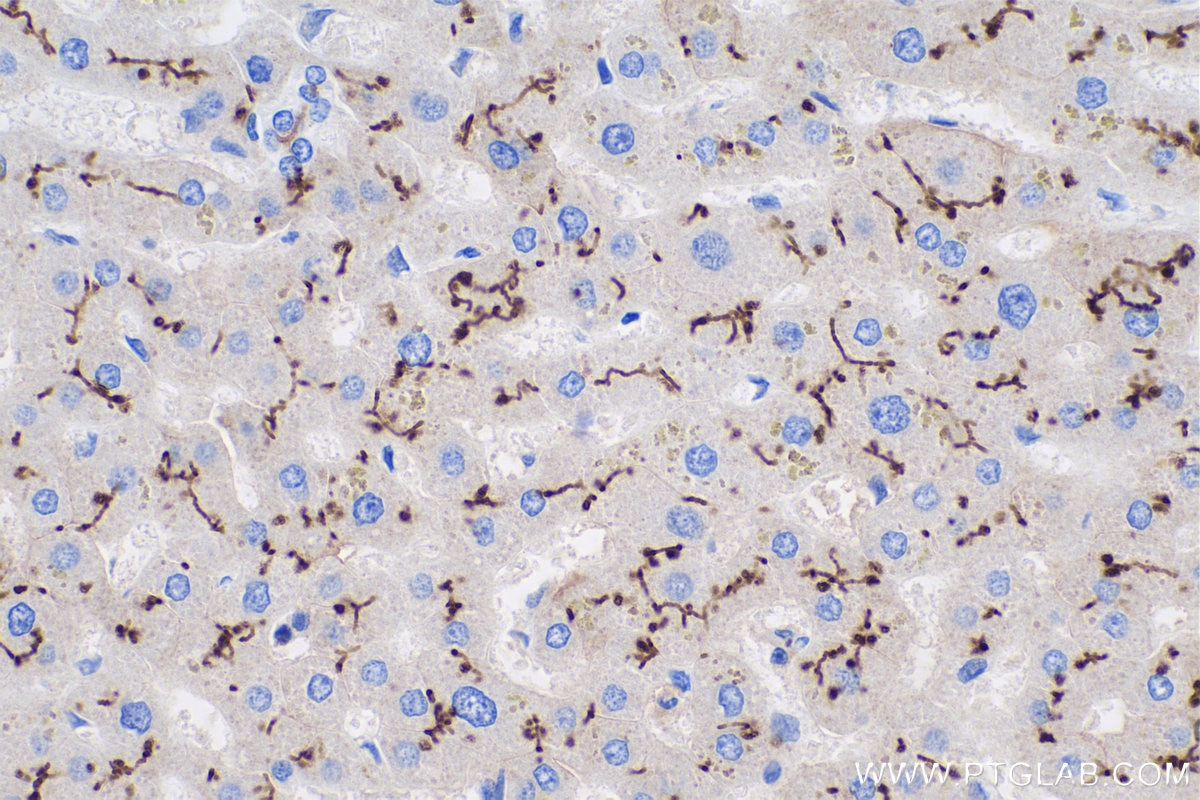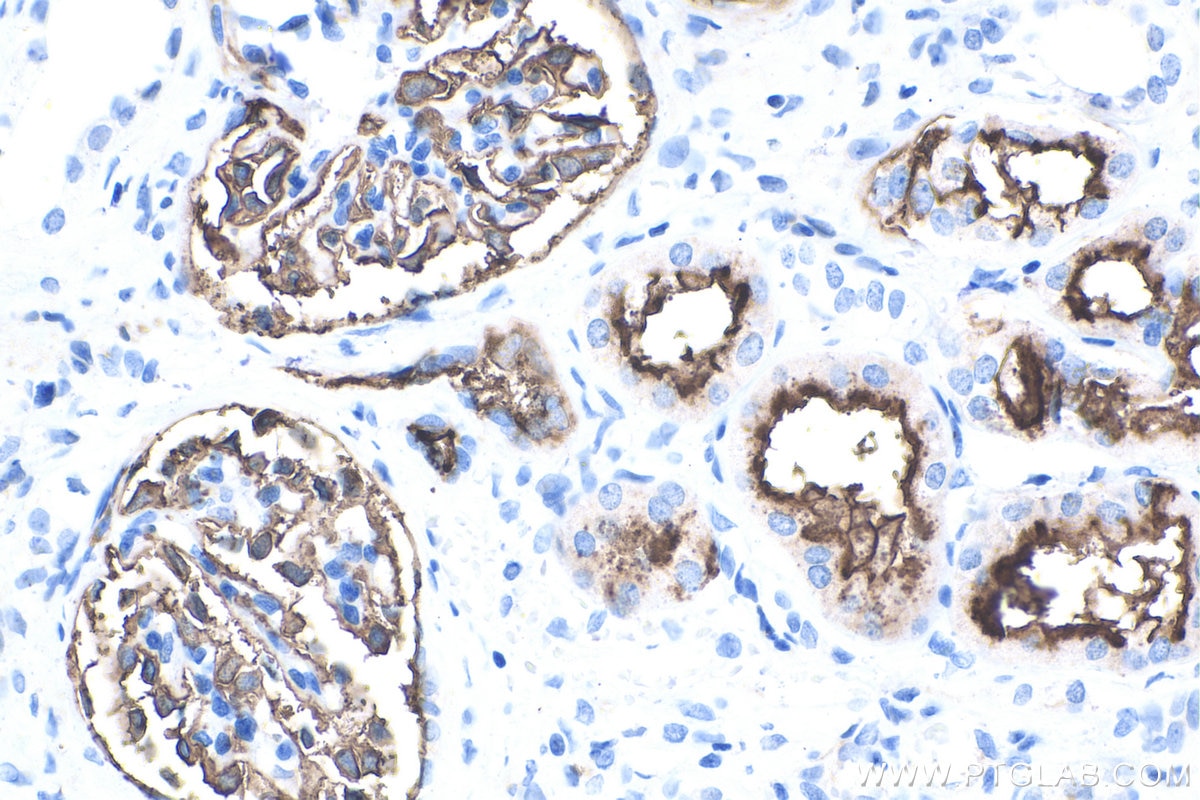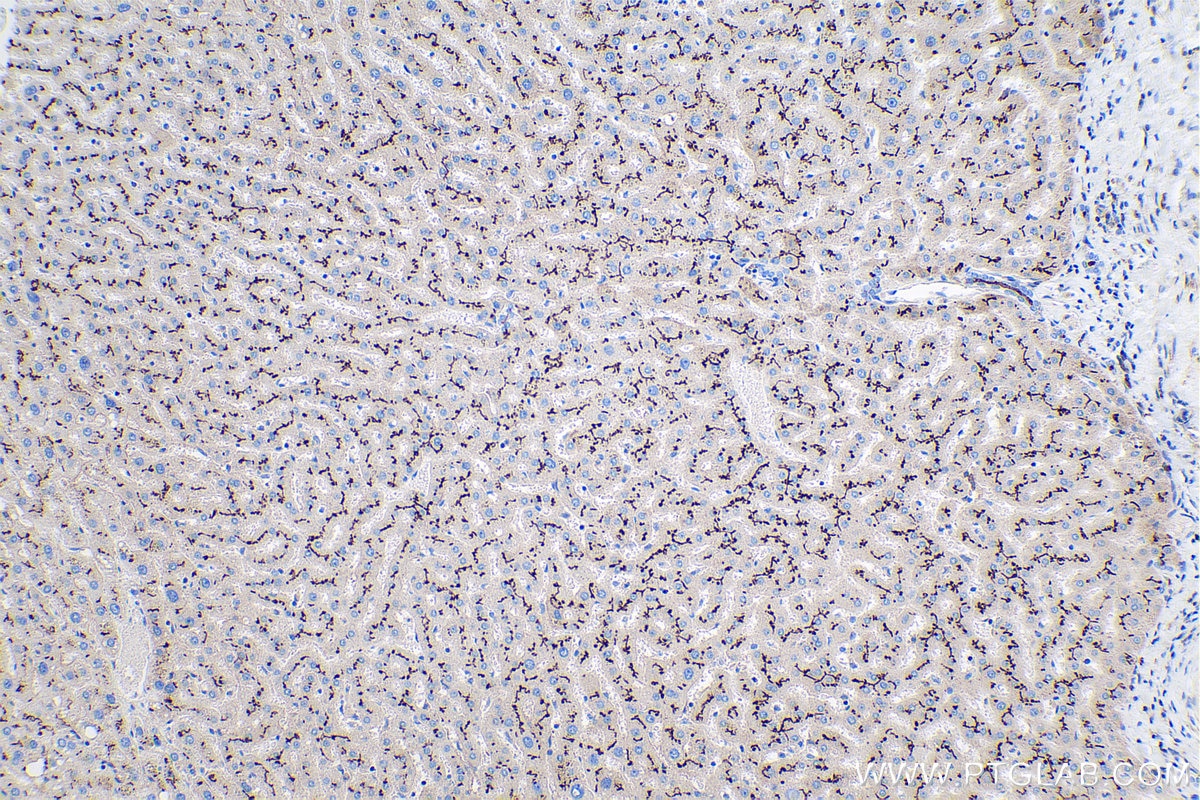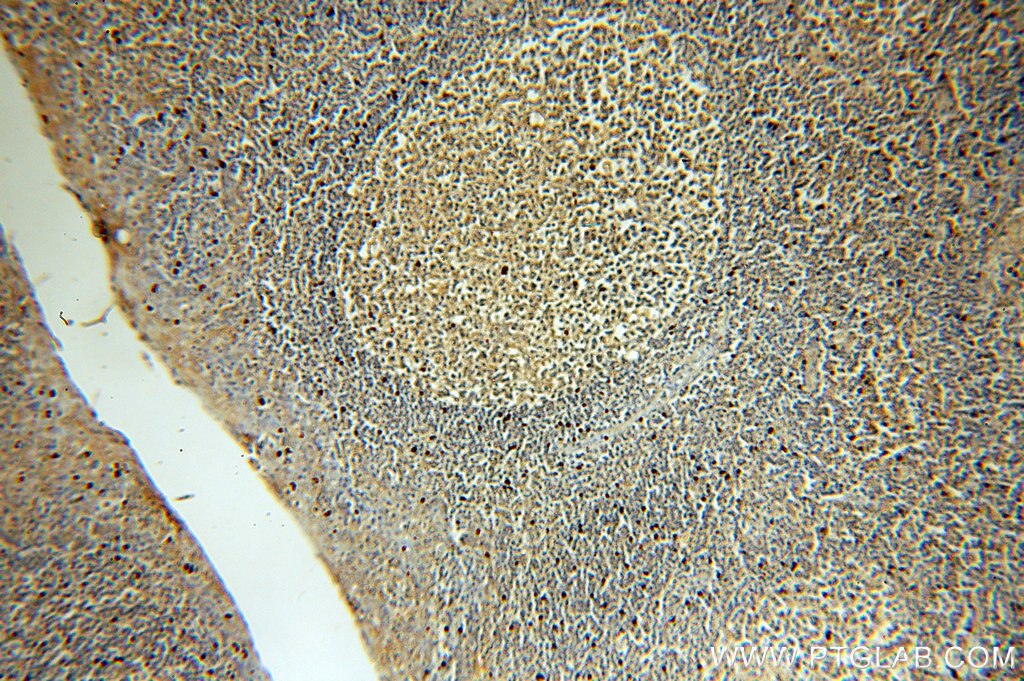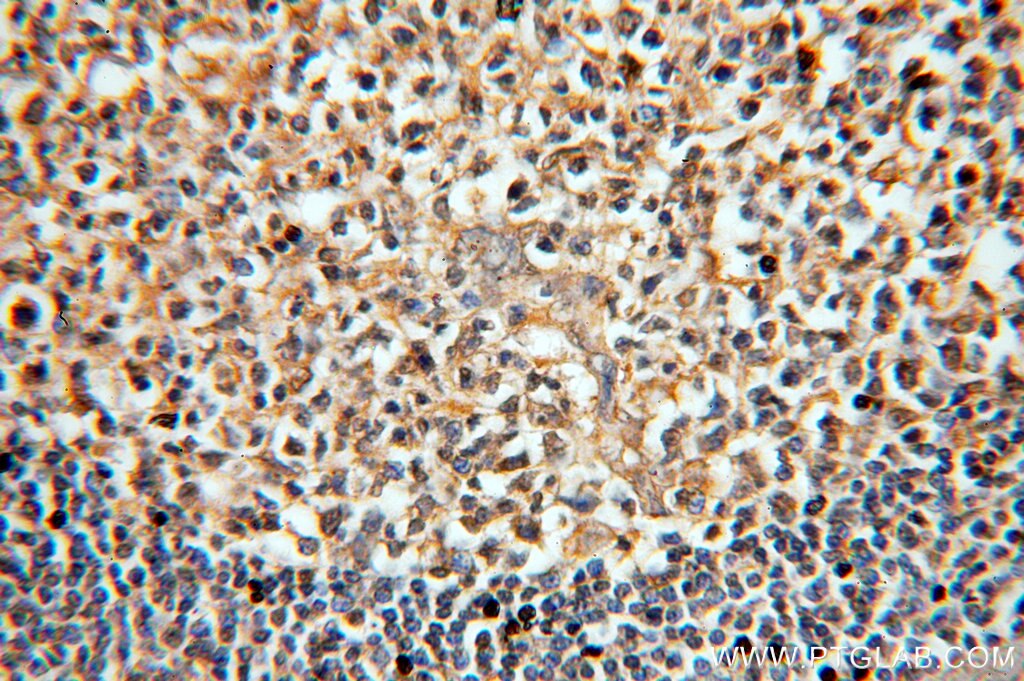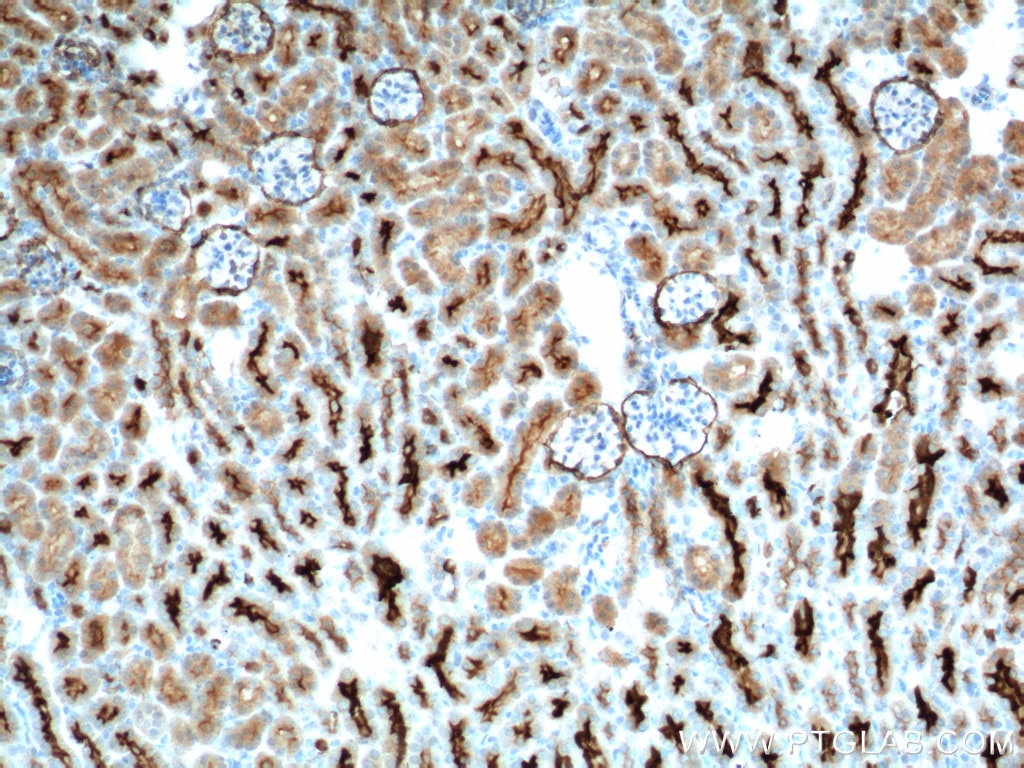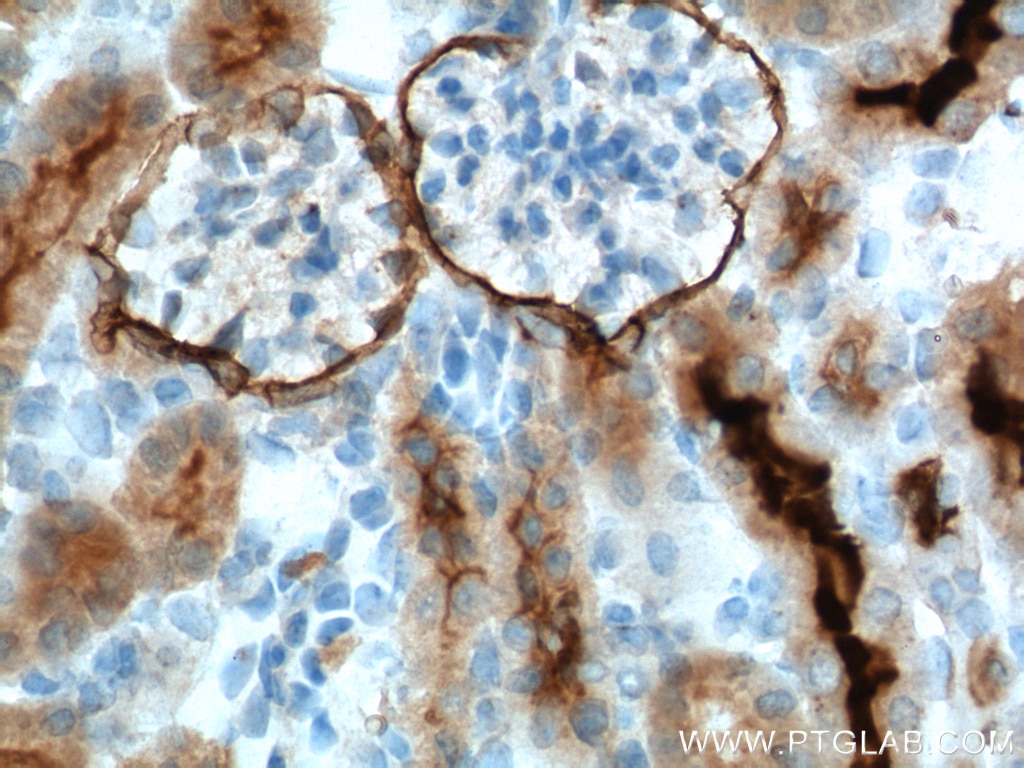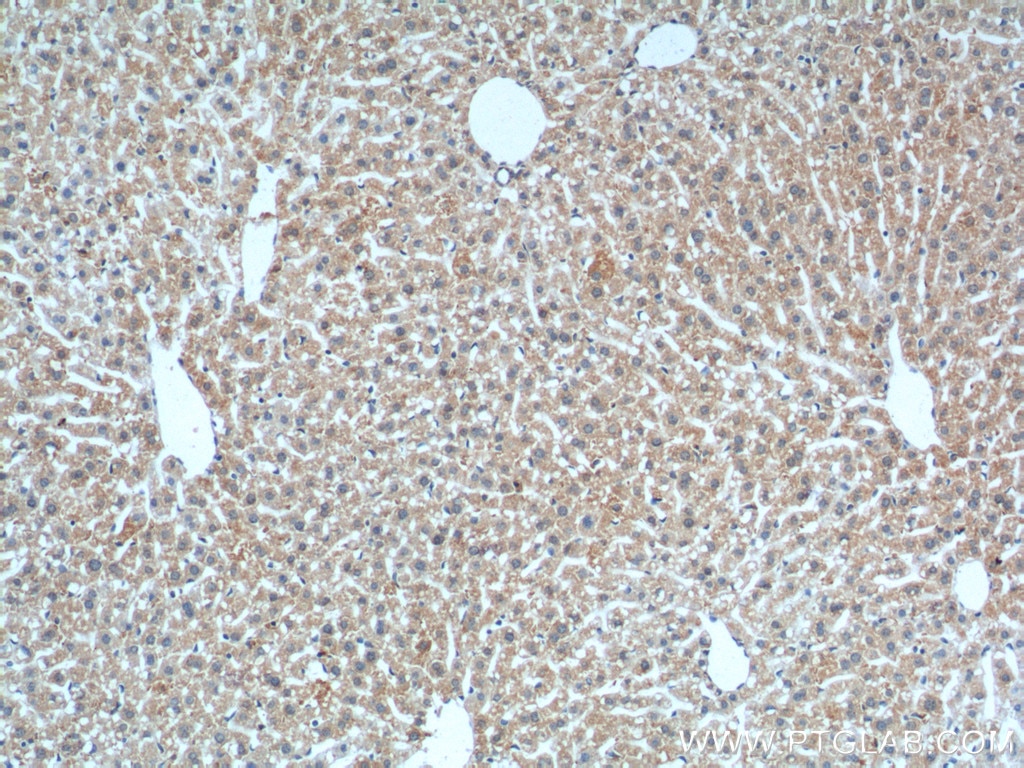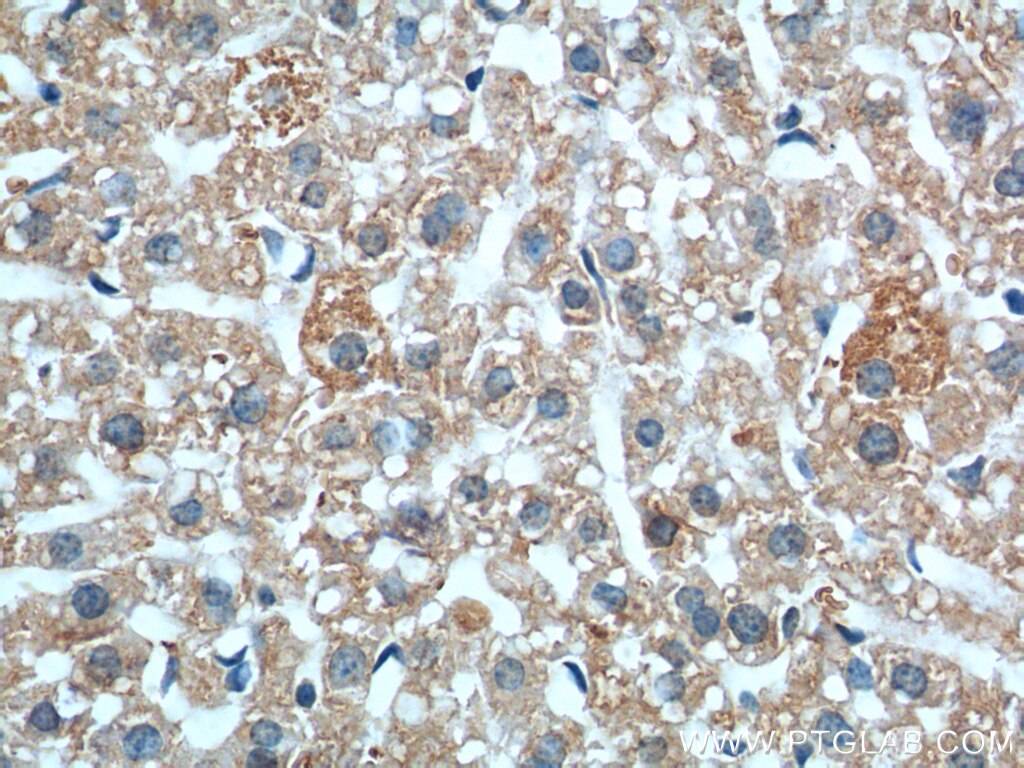WB Figures
WB analysis of HEK-293 using 60034-3-Ig (same clone as 60034-3-PBS)
WB result of Neprilysin/CD10 antibody (60034-3-Ig; 1:1000; incubated at room temperature for 1.5 hours) with sh-Control and sh-Neprilysin/CD10 transfected HEK-293 cells. This data was developed using the same antibody clone with 60034-3-PBS in a different storage buffer formulation.
WB analysis using 60034-3-Ig (same clone as 60034-3-PBS)
Various lysates were subjected to SDS PAGE followed by western blot with 60034-3-Ig (Neprilysin/CD10 antibody) at dilution of 1:10000 incubated at room temperature for 1.5 hours. This data was developed using the same antibody clone with 60034-3-PBS in a different storage buffer formulation.
WB analysis of Daudi using 60034-3-Ig (same clone as 60034-3-PBS)
Daudi cells were subjected to SDS PAGE followed by western blot with 60034-3-Ig (Neprilysin/CD10 antibody) at dilution of 1:10000 incubated at room temperature for 1.5 hours. This data was developed using the same antibody clone with 60034-3-PBS in a different storage buffer formulation.
WB analysis using 60034-3-Ig (same clone as 60034-3-PBS)
Various lysates were subjected to SDS PAGE followed by western blot with 60034-3-Ig (Neprilysin/CD10 antibody) at dilution of 1:10000 incubated at room temperature for 1.5 hours. This data was developed using the same antibody clone with 60034-3-PBS in a different storage buffer formulation.
WB analysis of Ramos using 60034-3-Ig (same clone as 60034-3-PBS)
Ramos cells were subjected to SDS PAGE followed by western blot with 60034-3-Ig (Neprilysin/CD10 antibody) at dilution of 1:10000 incubated at room temperature for 1.5 hours. This data was developed using the same antibody clone with 60034-3-PBS in a different storage buffer formulation.
WB analysis of pig kidney using 60034-3-Ig (same clone as 60034-3-PBS)
pig kidney tissue were subjected to SDS PAGE followed by western blot with 60034-3-Ig (Neprilysin/CD10 Antibody) at dilution of 1:1000 incubated at room temperature for 1.5 hours. This data was developed using the same antibody clone with 60034-3-PBS in a different storage buffer formulation.
WB analysis of mouse kidney using 60034-3-Ig (same clone as 60034-3-PBS)
mouse kidney tissue were subjected to SDS PAGE followed by western blot with 60034-3-Ig (Neprilysin/CD10 Antibody) at dilution of 1:1000 incubated at room temperature for 1.5 hours. This data was developed using the same antibody clone with 60034-3-PBS in a different storage buffer formulation.
IHC Figures
IHC staining of human stomach cancer using 60034-3-Ig (same clone as 60034-3-PBS)
Immunohistochemical analysis of paraffin-embedded human stomach cancer tissue slide using 60034-3-Ig (Neprilysin/CD10 antibody) at dilution of 1:50000 (under 10x lens). Heat mediated antigen retrieval with Tris-EDTA buffer (pH 9.0). This data was developed using the same antibody clone with 60034-3-PBS in a different storage buffer formulation.
IHC staining of human kidney using 60034-3-Ig (same clone as 60034-3-PBS)
Immunohistochemical analysis of paraffin-embedded human kidney tissue slide using 60034-3-Ig (Neprilysin/CD10 antibody) at dilution of 1:50000 (under 10x lens). Heat mediated antigen retrieval with Tris-EDTA buffer (pH 9.0). This data was developed using the same antibody clone with 60034-3-PBS in a different storage buffer formulation.
IHC staining of human kidney using 60034-3-Ig (same clone as 60034-3-PBS)
Immunohistochemical analysis of paraffin-embedded human kidney tissue slide using 60034-3-Ig (Neprilysin/CD10 antibody) at dilution of 1:50000 (under 40x lens). Heat mediated antigen retrieval with Tris-EDTA buffer (pH 9.0). This data was developed using the same antibody clone with 60034-3-PBS in a different storage buffer formulation.
IHC staining of human kidney using 60034-3-Ig (same clone as 60034-3-PBS)
Immunohistochemical analysis of paraffin-embedded human kidney tissue slide using 60034-3-Ig (Neprilysin/CD10 antibody) at dilution of 1:100000 (under 10x lens). Heat mediated antigen retrieval with Tris-EDTA buffer (pH 9.0). This data was developed using the same antibody clone with 60034-3-PBS in a different storage buffer formulation.
IHC staining of human kidney using 60034-3-Ig (same clone as 60034-3-PBS)
Immunohistochemical analysis of paraffin-embedded human kidney tissue slide using 60034-3-Ig (Neprilysin/CD10 antibody) at dilution of 1:100000 (under 40x lens). Heat mediated antigen retrieval with Tris-EDTA buffer (pH 9.0). This data was developed using the same antibody clone with 60034-3-PBS in a different storage buffer formulation.
IHC staining of human renal cell carcinoma using 60034-3-Ig (same clone as 60034-3-PBS)
Immunohistochemical analysis of paraffin-embedded human renal cell carcinoma tissue slide using 60034-3-Ig (Neprilysin/CD10 antibody) at dilution of 1:100000 (under 10x lens). Heat mediated antigen retrieval with Tris-EDTA buffer (pH 9.0). This data was developed using the same antibody clone with 60034-3-PBS in a different storage buffer formulation.
IHC staining of human stomach cancer using 60034-3-Ig (same clone as 60034-3-PBS)
Immunohistochemical analysis of paraffin-embedded human stomach cancer tissue slide using 60034-3-Ig (Neprilysin/CD10 antibody) at dilution of 1:50000 (under 40x lens). Heat mediated antigen retrieval with Tris-EDTA buffer (pH 9.0). This data was developed using the same antibody clone with 60034-3-PBS in a different storage buffer formulation.
IHC staining of human liver using 60034-3-Ig (same clone as 60034-3-PBS)
Immunohistochemical analysis of paraffin-embedded human liver tissue slide using 60034-3-Ig (Neprilysin/CD10 antibody) at dilution of 1:50000 (under 40x lens). Heat mediated antigen retrieval with Tris-EDTA buffer (pH 9.0). This data was developed using the same antibody clone with 60034-3-PBS in a different storage buffer formulation.
IHC staining of human renal cell carcinoma using 60034-3-Ig (same clone as 60034-3-PBS)
Immunohistochemical analysis of paraffin-embedded human renal cell carcinoma tissue slide using 60034-3-Ig (Neprilysin/CD10 antibody) at dilution of 1:100000 (under 40x lens). Heat mediated antigen retrieval with Tris-EDTA buffer (pH 9.0). This data was developed using the same antibody clone with 60034-3-PBS in a different storage buffer formulation.
IHC staining of human liver using 60034-3-Ig (same clone as 60034-3-PBS)
Immunohistochemical analysis of paraffin-embedded human liver tissue slide using 60034-3-Ig (Neprilysin/CD10 antibody) at dilution of 1:50000 (under 10x lens). Heat mediated antigen retrieval with Tris-EDTA buffer (pH 9.0). This data was developed using the same antibody clone with 60034-3-PBS in a different storage buffer formulation.
IHC staining of human tonsil using 60034-3-Ig (same clone as 60034-3-PBS)
Immunohistochemical analysis of paraffin-embedded human tonsil using 60034-3-Ig(Neprilysin/CD10 antibody) at dilution of 1:100 (under 10x lens). This data was developed using the same antibody clone with 60034-3-PBS in a different storage buffer formulation.
IHC staining of human tonsil using 60034-3-Ig (same clone as 60034-3-PBS)
Immunohistochemical analysis of paraffin-embedded human tonsil using 60034-3-Ig(Neprilysin/CD10 antibody) at dilution of 1:100 (under 40x lens). This data was developed using the same antibody clone with 60034-3-PBS in a different storage buffer formulation.
IHC staining of mouse kidney using 60034-3-Ig (same clone as 60034-3-PBS)
Immunohistochemical analysis of paraffin-embedded mouse kidney tissue slide using 60034-3-Ig (Neprilysin/CD10 Antibody) at dilution of 1:400 (under 10x lens). Heat mediated antigen retrieval with Tris-EDTA buffer (pH 9.0). This data was developed using the same antibody clone with 60034-3-PBS in a different storage buffer formulation.
IHC staining of mouse kidney using 60034-3-Ig (same clone as 60034-3-PBS)
Immunohistochemical analysis of paraffin-embedded mouse kidney tissue slide using 60034-3-Ig (Neprilysin/CD10 Antibody) at dilution of 1:400 (under 40x lens). Heat mediated antigen retrieval with Tris-EDTA buffer (pH 9.0). This data was developed using the same antibody clone with 60034-3-PBS in a different storage buffer formulation.
IHC staining of mouse liver using 60034-3-Ig (same clone as 60034-3-PBS)
Immunohistochemical analysis of paraffin-embedded mouse liver tissue slide using 60034-3-Ig (Neprilysin/CD10 Antibody) at dilution of 1:400 (under 10x lens). Heat mediated antigen retrieval with Tris-EDTA buffer (pH 9.0). This data was developed using the same antibody clone with 60034-3-PBS in a different storage buffer formulation.
IHC staining of mouse liver using 60034-3-Ig (same clone as 60034-3-PBS)
Immunohistochemical analysis of paraffin-embedded mouse liver tissue slide using 60034-3-Ig (Neprilysin/CD10 Antibody) at dilution of 1:400 (under 40x lens). Heat mediated antigen retrieval with Tris-EDTA buffer (pH 9.0). This data was developed using the same antibody clone with 60034-3-PBS in a different storage buffer formulation.

